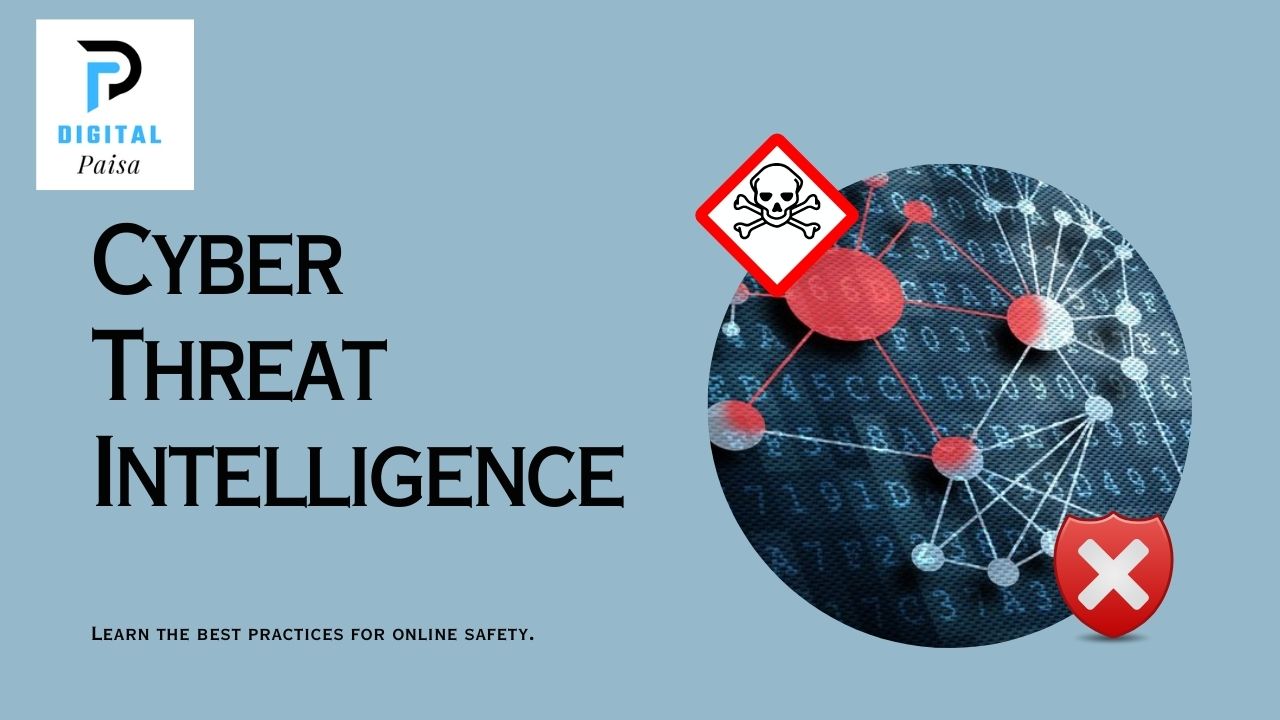In today’s interconnected world, the internet has become an integral part of our daily lives. From socializing to shopping, banking to business, almost every aspect of our lives has shifted online. However, with this increased reliance on technology comes the looming threat of cyberattacks. Cyber threat intelligence (CTI) plays a crucial role in protecting individuals, businesses, and organizations from these ever-evolving threats. In this comprehensive guide, we’ll delve into the world of cyber threat intelligence, exploring what it is, why it’s essential, and how it can help safeguard your digital assets in India.
What is Cyber Threat Intelligence?
Cyber threat intelligence (CTI) refers to the knowledge and insights gathered from analyzing cyber threats and vulnerabilities. It involves collecting, analyzing, and disseminating information about potential cyber threats to help organizations understand and mitigate risks effectively. CTI encompasses a wide range of data sources, including threat feeds, security alerts, incident reports, and open-source intelligence.
The Importance of Cyber Threat Intelligence in India
India, like many other countries, is experiencing a rapid digital transformation, with more businesses and individuals embracing technology for various purposes. However, this digital revolution also brings new challenges, as cybercriminals seek to exploit vulnerabilities in online systems for financial gain, espionage, or disruption. In such a landscape, cyber threat intelligence plays a vital role in enhancing cybersecurity posture and mitigating potential risks.
Key Benefits of Cyber Threat Intelligence
- Proactive Risk Management: By providing insights into emerging threats and vulnerabilities, cyber threat intelligence enables organizations to adopt a proactive approach to cybersecurity. Rather than reacting to incidents after they occur, organizations can anticipate and mitigate risks before they escalate into full-blown cyberattacks.
- Enhanced Incident Response: Cyber threat intelligence helps organizations improve their incident response capabilities by providing real-time information about ongoing threats and attacks. This allows security teams to respond swiftly and effectively to cyber incidents, minimizing damage and disruption to business operations.
- Better Decision Making: Informed decision-making is critical in cybersecurity, and cyber threat intelligence provides the necessary context and intelligence to make strategic decisions. Whether it’s allocating resources, prioritizing security measures, or investing in new technologies, CTI empowers organizations to make well-informed decisions that align with their cybersecurity objectives.
- Improved Security Posture: By continuously monitoring and analyzing cyber threats, organizations can identify and address weaknesses in their security infrastructure, thereby enhancing their overall security posture. Cyber threat intelligence helps organizations stay one step ahead of cybercriminals by identifying and remedying vulnerabilities before they can be exploited.
Types of Cyber Threat Intelligence
Cyber threat intelligence can be classified into several categories, each serving a specific purpose in the cybersecurity ecosystem:
- Strategic Intelligence: Strategic intelligence provides high-level insights into long-term trends, emerging threats, and geopolitical factors that may impact cybersecurity. It helps organizations understand the broader threat landscape and formulate strategic plans to address evolving risks.
- Tactical Intelligence: Tactical intelligence focuses on specific threats, attackers, and attack techniques encountered in the wild. It provides actionable information that security teams can use to detect, analyze, and respond to cyber threats effectively.
- Operational Intelligence: Operational intelligence deals with real-time data on current cyber threats and incidents. It helps security teams monitor their networks, systems, and assets for signs of compromise and take immediate action to mitigate risks.
- Technical Intelligence: Technical intelligence focuses on the technical details of cyber threats, such as malware signatures, exploit techniques, and network indicators of compromise (IOCs). It helps security teams develop and deploy defensive measures to protect against known threats.
Cyber Threat Intelligence in Practice
In India, both public and private sector organizations are increasingly leveraging cyber threat intelligence to enhance their cybersecurity posture. Government agencies, financial institutions, healthcare providers, and e-commerce platforms are among the many entities investing in CTI capabilities to protect their digital assets and customer data.
Challenges and Considerations
While cyber threat intelligence offers significant benefits, implementing and operationalizing CTI programs come with their own set of challenges. Some common challenges include:
- Data Overload: With the sheer volume of data available, organizations may struggle to filter and prioritize relevant threat intelligence effectively.
- Resource Constraints: Building and maintaining a robust CTI program requires dedicated resources, including skilled personnel, technology infrastructure, and ongoing training.
- Information Sharing: Collaboration and information sharing among organizations are essential for effective threat intelligence, but concerns about data privacy and competitive advantage may hinder such efforts.
- Attribution and Accuracy: Determining the source and reliability of threat intelligence can be challenging, making it difficult to assess the accuracy and credibility of the information.
Conclusion
In conclusion, cyber threat intelligence plays a vital role in safeguarding India’s digital landscape against cyber threats. By providing actionable insights into emerging threats, vulnerabilities, and attack techniques, CTI enables organizations to strengthen their cybersecurity defenses and mitigate risks effectively. As India continues its digital transformation journey, investing in cyber threat intelligence capabilities will be essential for ensuring the security and resilience of critical infrastructure, businesses, and individuals alike.
To read more interesting blogs Click here…

